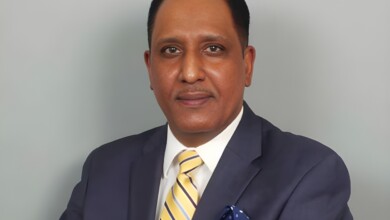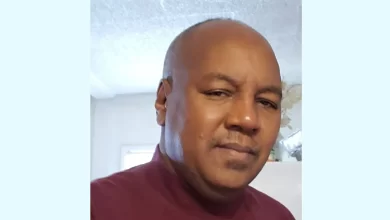The Warplanes’ War Against Citizens
Dr. Siddiq Ombada

I don’t believe we would disagree on the fact that a Sudanese national in his homeland is Sudanese regardless of where he resides. In addition, any crime is that of its perpetrator by default, “A crime is a dog that follows its master” as a common Sudanese proverb goes, and not any other person, regardless of their regional, tribal or zonal connection. Thus, classifying some cities and regions in Darfur and Kordofan states in particular as “incubators” for the Rapid Support Forces and the ramifications of such actions on citizens who live in those cities (and the countryside), turning them into legitimate targets for mass annihilation and terrorizing, is undoubtedly an illegal classification.
Not only that, but this behavior takes us back to ancient times when collective punishment was the law as well as the heavy hand of “the strong over the weak.”
The ease with which warplanes’ crimes against citizens of the cities and countryside of those “incubators” are classified as racial targeting by many, even those from outside those regions, is the wose part. Hence, can we blame those targeted when they believe that, when they can clearly see that warplanes are targeting them directly and indirectly by striking water and electricity facilities, hospitals and weekly markets ?
When the leaders of the Army and the State take on the responsibility of calling for targeting social incubators and directing warplanes to strike them -that is, to strike and kill the families of the Rapid Support Forces’ soldiers- or the tribes that some members of which are suspected of be affiliated with the Rapid Support Forces, the door is then left wide open for hate speech to spread.
The vile circle is then completed when they follow their previous actions with their warmongers and numerous fools on social media calling for the elimination of those social incubators, and going as far as to call for killing mothers who give birth to those who could become members of the “RSF” in the future. Do these people not know that such uncontrollable nonsense and incitement to kill in such a manner is a call for the genocide of specific tribal/ethnic groups.!
Instead of curbing this discourse, the Army Leadership and the State seem to be (happy) with it, because they continue to direct warplanes to strike and kill those who are present or reside in these areas. Hate speech has taken a dangerous turn in recent days, as an elderly man perhaps over seventy years old, appeared in front of a background bearing the name and logo of the -notorious since the era of an-Nimeiry, Socialist Union, and said after a rather morbid speech: “They want us to be silent and we refuse to be, we are racists in Central Sudan, racists, and we will not be silent anymore.” There is no power nor might save in Allah.
Continuing down this path of targeting, they follow the Air Force’s directive to strike what they deemed “social incubators”, with laws, such as the Strange Faces Law, on those present in the areas/incubators of Army officers, the safe states. The Strange Faces law is applied to anyone suspected of not being from the region, if they’re displaced, and especially if their identification papers or dialect clearly shows that they’re born in the western states of Sudan, to which most of the Rapid Support fighters belong.
Suspects are even tried in ‘kangaroo’ courts*, such as the one recently held for Al-Sadiq Al-Tahir Daw Al-Bait, whose verdict has become a topic of discussion on social media. Al-Tahir Daw Al-Bait was born in South Darfur and suffers from kidney failure. Like many others, he fled to Atbara with his two sons, Al-Sadiq and Adil, seeking medical treatment.
The aforementioned trial took place several months after his sons were kept in detention in the Security Services’ stations, and the judge issued his verdict in the absence of the complainant and investigator -according to a widely circulated recording of the convict’s father.
The grounds for the verdict, according to what is circulated (for example, an audio recording of journalist Mohammed Latif on September 27th, 2024), were the presence of the words “bal bas – Military Decisiveness only” on his mobile phone, which the diligent judge considered to be “mockery,” and based on that, he issued a twenty-year prison sentence for the accused.
I do not know claim to what Qaraqosh, who is a byword for unfair judgment, ruled, but it seems that in our lean times, at least one judge appears to be in competition with him or is on his side in regards to the injustice of judgments.
Unfortunately, this isn’t the first incident. Last month, the young woman, Al-Rahmon Hamid (24 years old), from the Messiria tribe, originally from West Kordofan, was sentenced to death by the Atbara Criminal Court for being in possession of prescriptions from the medical center where she used to work prior to the war, in Sharg Alneel area that is under the control of the Rapid Support Forces, on charges of espionage. The case is now on appeal.
I do not know when exactly the idea/strategy of striking the social incubators instead of the Rapid Support Forces began. In my estimation, it may have been after the Army lost most of its positions and the General Command inside the capital, perhaps after the successive fall of its garrisons under the control of the Rapid Support Forces due to the withdrawals of its forces from said garrisons, or after the Army Forces fled from both Al-Jazeera, Singa, as well as from some areas in West Kordofan and other regions.
Whether my assumption about the timing is correct or not, this strategy is a desperate reaction and a disastrous policy for the Army to adopt. I say this because its an idiotic failure, like the old Sudanese proverb -which is currently despised- “The grievance towards a free woman is taken out on an unfree woman,” because when the Sudanese Armed Forces were unable to confront and defeat the Rapid Support Forces on the battlefields, they instead resorted to striking what they called their social incubators, meaning their families, their relatives, and everyone present in those areas from all ethnicities.
Iam uttering such statements because targeting the social incubators will not -in itself- constitute a victory for the Army over the Rapid Support Forces on the battlefield, and targeting civilians may bring upon the Army and its leadership legal lawsuits with dire consequences in the future. It is also no less disastrous in its effects on the Sudanese people, as -God forbid- it may lead to civil war in which killing will be based on identity, and no one would be able to escape it, except those who fan the flames of war from a safe distance in their exile countries (May Allah’s damnation be upon them).
Unfortunately, the targeting of civilians by warplanes didn’t begin in the ongoing war, but rather some time ago, in its war against the ‘rebels’ in both the Nuba Mountains and Darfur. The Darfur Bar Association alerted me to this and provided me with some information. I would like thanks them and their president, Mr. Al-Sadiq Ali Hassan.
In Darfur specifically, warplanes began targeting water sources and polluting the environment in (2016). The Amnesty International report issued on September 29th, 2016 states that the Sudanese Army used chemical weapons in Darfur, killing (200) people due to breathing difficulties and vomiting.
During the ongoing war, warplanes carried out airstrikes with explosive barrels on various locations in Darfur, including the cities of Al-Fasher, Nyala, Ed Daein, Zalingei and Al-Geneina, causing severe damage to water sources and the environment. On April 27th, the Air Force targeted water sources in the areas of Kabkabiya, Al-Zawiya, Gharra and Jadid Al-Sail.
In more detail, we see below the results of the aerial bombardment of the so-called Rapid Support Forces social incubators in Darfur and Kordofan:
Nyala: During the past four months, bombing operations have included four markets, as well as bombing the hospital, the Nyala electricity and water station, in addition to the bridge linking the two sides of the Nyala Valley. Several months prior, the Taiba Bridge was bombed, and the number of casualties was (23), most of whom were women and children. Finally, the airport was bombed and destroyed after news about an unidentified aircraft landing there circulated.
Ed Daein: The city market was subjected to air strikes three times, which led to the death and injury of numerous civilians.
Al-Fasher: The livestock market was bombed twice, as well as the children’s hospital and the electricity and water stations. For two months now, the city has been bombed more than once daily (due to the presence of the Rapid Support Forces inside the city).
Kutum: The city was bombed five times; these aerial strikes included the hospital and the market.
Al-Zurq: The bombing was carried out with explosive barrels (as is the case in most sorties), destroying (15) out of (18) water source in the area; which led to the displacement of the majority of the area’s residents, who are nomadic shepherds.
Mellit: It was bombed approximately (13) times, thse air strikes included a well complex – where 250-300 camels and seven of their owners were killed while they were drawing water from those wells for the first time. The market was also bombed more than once, and the last air strike launched on the city took place on Friday, October 4th, killing (8) people from one family, and the hospital was also bombed.
Al-Koma (East of Al-Fasher): The city and its environs were bombed approximately (12-15) times, the last of which was on Friday, October 4th, when the city’s weekly market was bombed with explosive barrels at a time clearly intended to cause the greatest number of human casualties. The bombing took place at 10:00 am (the time of the market’s opening) and on the weekly market day when the city’s market is crowded with shoppers from nearby villages.
The airstrike resulted in (90) casualties, including women, children and some elderly people, in addition to a large number of wounded – initially about (250) people, a large number of whom died due to the lack of first aid and necessary medicines.
Hamrat Al-Sheikh (North Kordofan): The last bombing took place on Friday, October 4th, which was the market day in Al-Humra, and led to the death of approximately (30) people and more than (100) were wounded according to some sources.
Al-Muglad (West Kordofan): Was bombed approximately (3) times.
Babnusa (West Kordofan): It was bombed several times, and most of its buildings and institutions were destroyed.
It is worth noting that the Air Force targeted markets in general, especially when these markets are crowded with citizens, as in the markets of the cities of Al-Koma and Al-Humra. In addition to targeting water sources (Dwanki, wells) that citizens depend on to obtain water for themselves and their livestock, as they are -naturally- crowded places as well.
Moreover, hospitals and water stations were targeted, as in Al-Fasher and Nyala. We can safely conclude that the goal of the continuous aerial attacks on what is deemed incubators, is to cause the largest number of casualties among innocent citizens, women, children and the elderly.
It is rather well-known that war, despite its immorality in the first place, also has moral laws, the first of which is to refrain from targeting civilians. The collective punishment of specific tribes and ethnicities as sources/incubators for the Rapid Support Forces is based on a false assumption, because most of these tribes have sons who also fight in the ranks of the Army.
If the intention was to intimidate, then unfortunately this won’t be achieved, but rather it may have to the exact opposite effect if the people of these areas understood that the continuous bombing of their areas is the beginning of a war of mass annihilation against them.
In any case, Sudan has gone through enough hardships and disasters, we mustn’t add fuel to its fire.
We pray to God to guide all the warring parties to the right path, so that they can spare Sudan from slipping into a fate with an unknown severity. The truth is that the greatest responsibility now lies with the Sudanese Army to see beyond short-sighted strategies such as bombing innocent people – which are losing and destructive strategies to all of Sudan, and may lead to the outbreak of a civil war that will consume Sudan’s territory.
I believe that it is the duty of all parties to the conflict as well as its supporters to curb the crazy and exacerbated acts of fanning the flames of racist discourse. Civilian forces in general must also strive by all means to highlight the dangers of hate speech and its disastrous consequences on Sudan.
Gentlemen, Army leaders, you have the power to direct the war and your forces to strike your enemy in the field -the Rapid Support Forces- which is your natural right. You don’t need to be reminded that it is your duty to spare civilians of all backgrounds and colors from suffering due to the war, to protect them from being hit by light arms bullets, from shrapnels of heavy artillery whenever possible, and from the bombing of warplanes, which is under your command.
Many may believe that with such statements I am plowing the sea, but i’m still hopeful everyone will do good according to their abilities, duties and what their conscience dictate to them when it comes to the homeland.
To Lt. Gen. Abdel Fattah Al-Burhan, and in your capacity as Commander-in-Chief of the Army as well as Chairman of the Sovereignty Council, you have often repeated in your speeches that “This particular time is about the homeland”, so why don’t you do what the responsibility of the homeland dictates to you.! If you fail to lean towards peace now, at least spare Sudan from deteriorating into the pit of fragmentation and division, “Stop targeting the innocent civilians by warplanes” in every part of Sudan (on the 7th of October, the “Fur” market in Hasahisa was targeted), work on putting an end to hate speech, staunching the prayers of the oppressed subsequently.
An impoverished woman who tends her goats in the countryside of Al-Koma in North Darfur said that her goats were bombed. After the bombing, she raised her hands to the sky praying: “I am a woman, I have no power or might, and I have nothing to earn a living from except my goats (I have nothing but them), O Burhan, I pray and complain about you to God Almighty, whose arm never weakens.” She repeated those statements several times. I think that her prayer and others like hers are not veiled from God.
* The term Kangaroo Courts dates back to the eighteenth century in the American West, where there were many Australians searching for gold there. It refers to expedited courts that don’t take into account the necessary procedures required to reach a fair verdict, but rather jumps (like a kangaroo) directly to issuing the pre-determined verdict, ignoring any evidence that is in favor of the accused. It is well known that the kangaroo -native to Australia- hops when it walks.




